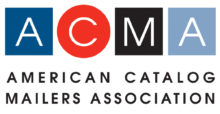![]()

Filling the void left by Congress, California is out front in online privacy regulation. Last year, the state passed the most significant and comprehensive privacy law in the country, the California Consumer Privacy Act (CCPA). Effective January 1, 2020, the CCPA will impose a wide range of obligations on a large number of out-of-state firms. Businesses that do not comply could face class action lawsuits, and exposure to civil penalties or damages of $100-$750 per customer per violation.
Here’s what you should know in preparing for the CCPA:
- Your Business May Be Affected, No Matter Where It Is Located. If you have California customers and more than $25,000,000 in worldwide revenue or if you buy, sell, or use the personal information of more than 50,000 California residents, you may have compliance obligations.
- The CCPA Will Likely Change How You Deal with Personal Information.
- You will have to let consumers know what personal information you collect before
- You will have to provide that personal information to a California consumer upon request.
- You will have to delete that personal information upon request.
- If you sell consumer personal information, you will have to put a “Do Not Sell My Information” button (or something like it) on your website.
- “Consumer” means any person living in California.
- “Personal information” means information that identifies, relates to, describes, is capable of being associated with, or could reasonably be linked, directly or indirectly, with a particular consumer or household.
- There Will Be Litigation.
- Private class actions can be filed for a data breach or similar violation.
- A pending bill would allow private suits for any
- The California Attorney General can sue for any
- Private class actions can be filed for a data breach or similar violation.
- Currently, You’ll Have 30 Days to Cure an Alleged Violation.
- But the same pending bill would strip this protection from the law.
Massachusetts, Washington, and other states are lining up to follow California’s lead. It will require a well organized and effective coalition but companies must work together to stop this insanity in Washington or ultimately face 50 different privacy approaches, some contradicting one another. With over a dozen comprehensive privacy bills moving in state capitals, time is running short.
Authored by ACMA’s legal advisors at Brann & Isaacson, this information sheet is not legal advice, but a high–level summary of emerging issues. It is not a comprehensive review of federal, state, or local data privacy or security laws; nor is it an in–depth analysis of any legal requirements applicable to particular businesses or industries. If you have specific questions about data privacy or security issues particular to your business, please contact a member of the Brann & Isaacson team:
David W. Bertoni: dbertoni@brannlaw.com
David Swetnam-Burland: dsb@brannlaw.com
Stacy O. Stitham: sstitham@brannlaw.com
Nathaniel A. Bessey: nbessey@brannlaw.com
Legal Benefits for ACMA Members Only
As part of their membership, all ACMA members receive a periodic update of legal reports, including our popular Legal Corner column authored by Brann & Isaacson attorneys. Also, all ACMA member companies are eligible to receive a complete privacy audit for $2,000, a significant discount off the firm’s regular rate. If interested, please contact Martin Eisenstein (meisenstein@brannlaw.com).
American Catalog Mailers Association advocates for the unique collective interests of catalog mailers and other online merchants in regulatory, public and administrative matters where the shared impact transcends individual company interests. The ACMA participates in rulemaking and other proceedings of significance where a single collective voice increases influence and effectiveness. Membership is open to any party with direct interests in the catalog or e-commerce industries. More information can be found at www.catalogmailers.org.
Brann & Isaacson (brannlaw.com) represents the ACMA as well as a number of leading catalog companies and direct and online marketers on various legal matters including tax, privacy and data security, FTC compliance, abandoned property law, intellectual property, product safety, consumer protection, and litigation.
© 2019 American Catalog Mailers Association, Inc., All Rights Reserved. Unauthorized use without prior permission from the American Catalog Mailers Association is illegal and will be prosecuted.